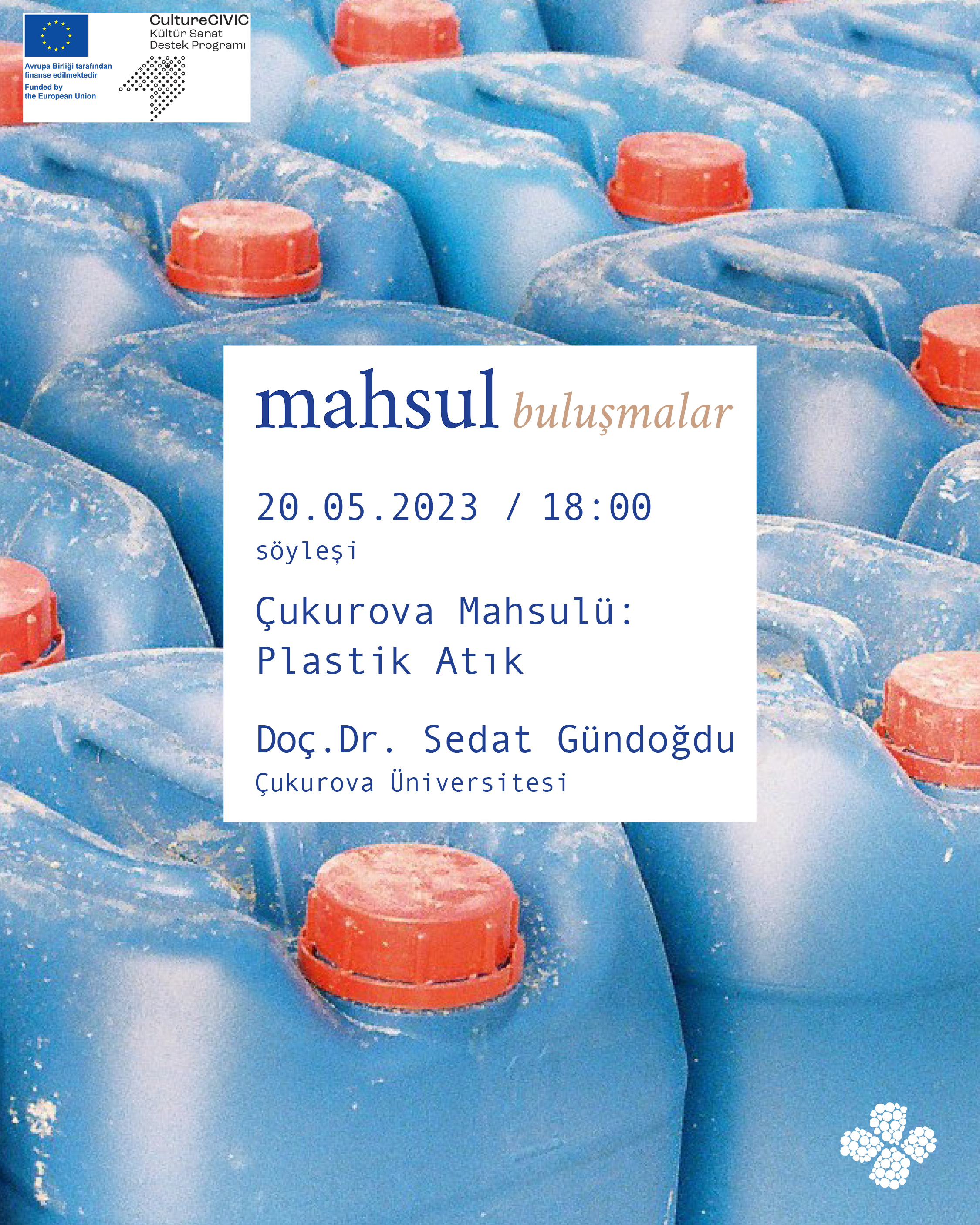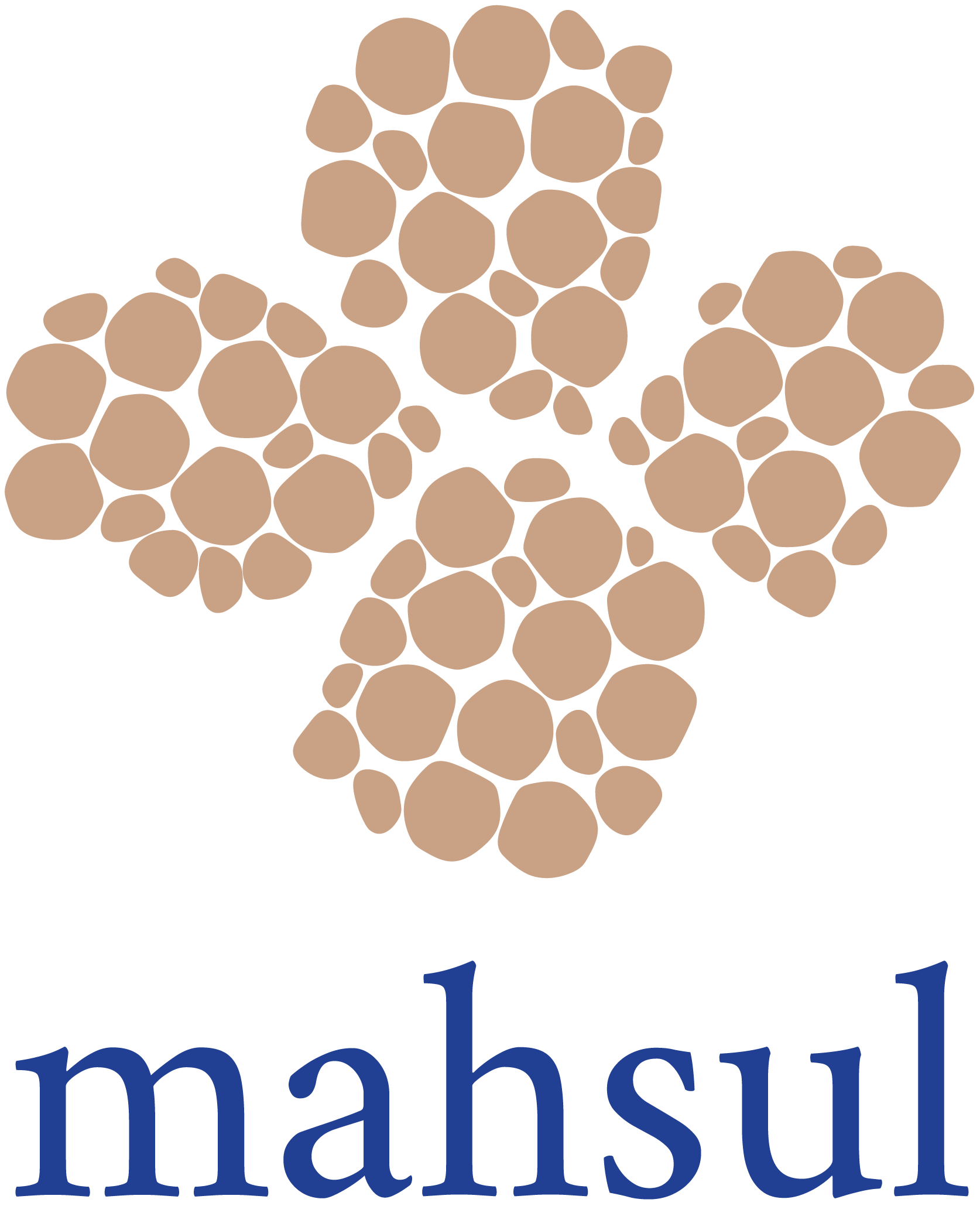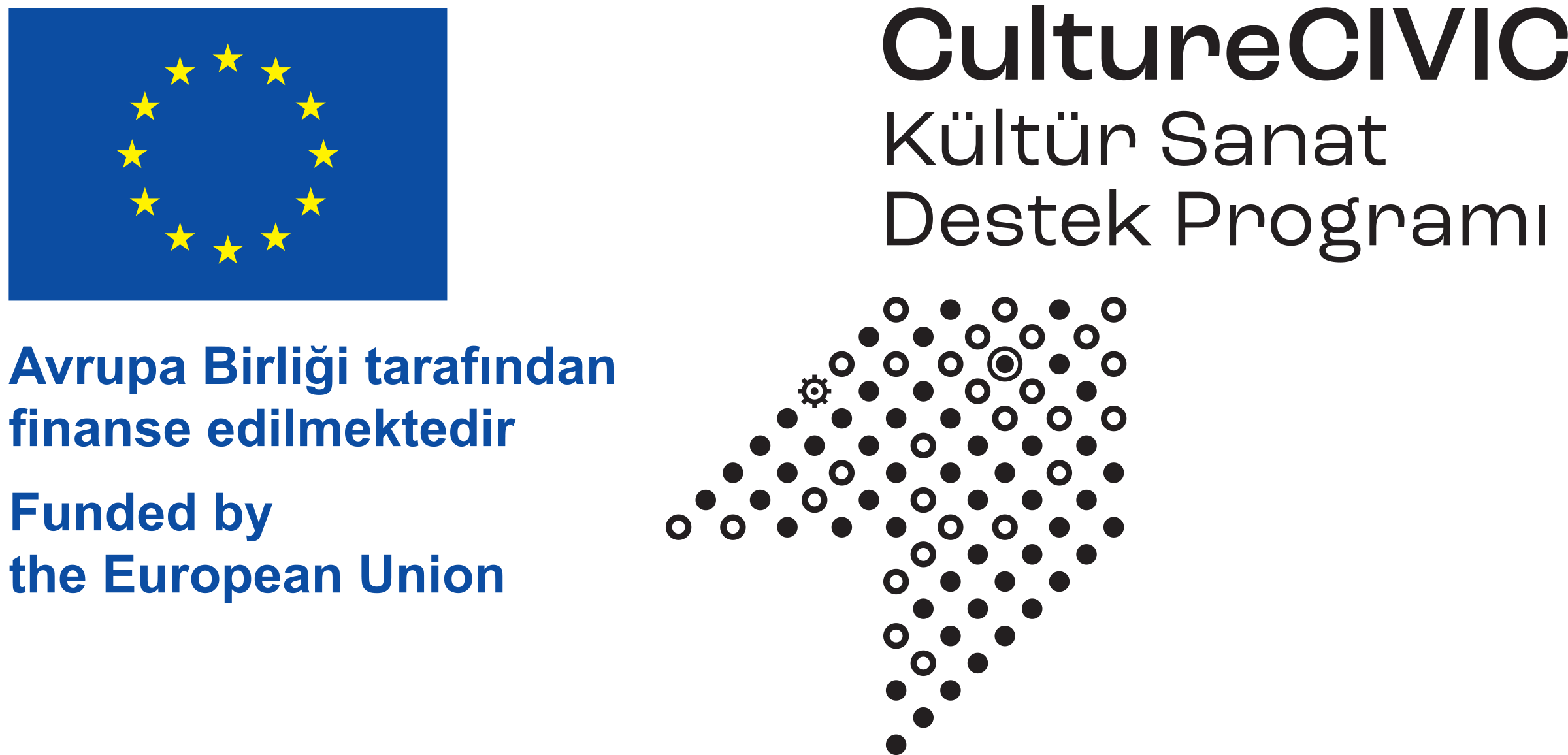Mahsul Buluşmalar:
Çukurova’nın Mahsulü:
Plastik Atık
Mahsul Meetings: Yields of Çukurova: Plastic Waste
20.05.2023
18:00
Konuşma kaydı youtube üzerinden izlenebilir.
The recording of the conversation can be viewed on youtube.
18:00
Konuşma kaydı youtube üzerinden izlenebilir.
The recording of the conversation can be viewed on youtube.
20 Mayıs Cumartesi Akşamı saat 18:00’da gerçekleşecek Mahsul Buluşmaları’nın ilk konuğu Sedat Gündoğdu. Söyleşi uzun yıllardır bilimsel çalışmalarını Çukurova üzerine yürüten Gündoğdu ile endüstriyel tarım ve ilişkili sanayi üretimlerinin göz ardı edilmiş mahsulü olarak ovadaki plastik atıklara odaklacak. Plastiğin çevreden sofraya bıraktığı izleri, plastik peyzajlarını ve bir hammadde olarak plastiğin yolculuğunu konuşacağız.
Doç. Dr. Sedat Gündoğdu Çukurova Üniversitesi Su Ürünleri Fakültesinde deniz biyolojisi üzerine çalışmalar yürütmektedir. Mikroplastiklerin sucul ortama girdiği kaynaklar, sucul ortamdaki dağılımı, canlılara etkisi ve besin zincirine transferi konularında çok sayıda çalışmaya sahiptir. Plastik kirliliğinin önlenmesi için atık yönetimi ve atık azaltımı gibi konularda eğitimler de veren Dr. Gündoğdu’nun şimdiye kadar, sofra tuzları, midyeler, tüketimlik balıklar, balık yemleri gibi gıdalardaki mikroplastik kirliliğini ortaya koyan çalışmalar gerçekleştirmiş. Atık sulardan salınan, deniz yüzeyi ve sedimentinde dağılım gösteren mikroplastiklerle de ilgili çalışmalarda yer almıştır. Hali hazırda da plastik kirliliğinin kaynakları ve çeşitli ekosistemlerdeki dağılımını ve plastik çöp ticaretinin ekosistem üzerindeki etkilerini araştırmaktadır.
Doç. Dr. Sedat Gündoğdu Çukurova Üniversitesi Su Ürünleri Fakültesinde deniz biyolojisi üzerine çalışmalar yürütmektedir. Mikroplastiklerin sucul ortama girdiği kaynaklar, sucul ortamdaki dağılımı, canlılara etkisi ve besin zincirine transferi konularında çok sayıda çalışmaya sahiptir. Plastik kirliliğinin önlenmesi için atık yönetimi ve atık azaltımı gibi konularda eğitimler de veren Dr. Gündoğdu’nun şimdiye kadar, sofra tuzları, midyeler, tüketimlik balıklar, balık yemleri gibi gıdalardaki mikroplastik kirliliğini ortaya koyan çalışmalar gerçekleştirmiş. Atık sulardan salınan, deniz yüzeyi ve sedimentinde dağılım gösteren mikroplastiklerle de ilgili çalışmalarda yer almıştır. Hali hazırda da plastik kirliliğinin kaynakları ve çeşitli ekosistemlerdeki dağılımını ve plastik çöp ticaretinin ekosistem üzerindeki etkilerini araştırmaktadır.
On May 20, Saturday evening at 18:00, Sedat Gündoğdu will be the first guest of the Mahsul Meetings. The conversation with Gündoğdu, who has been conducting his scientific studies on Çukurova for many years, will focus on plastic waste in the plain as a neglected crop of industrial agriculture and related industrial productions. We will talk about the traces left by plastic from the environment to the table, plastic landscapes and the journey of plastic as a raw material.
Assoc. Prof. Sedat Gündoğdu works on marine biology at Çukurova University, Faculty of Fisheries. Gündoğdu has numerous studies on the sources of microplastics entering the aquatic environment, their distribution in the aquatic environment, their effects on living organisms and their transfer to the food chain. Dr Gündoğdu, who also provides training on waste management and waste reduction to prevent plastic pollution, has so far conducted studies on microplastic pollution in foods such as table salts, mussels, fish for consumption and fish feeds. He has also been involved in studies on microplastics released from wastewater and distributed on the sea surface and sediment. She is currently researching the sources and distribution of plastic pollution in various ecosystems and the effects of the plastic garbage trade on the ecosystem.
Assoc. Prof. Sedat Gündoğdu works on marine biology at Çukurova University, Faculty of Fisheries. Gündoğdu has numerous studies on the sources of microplastics entering the aquatic environment, their distribution in the aquatic environment, their effects on living organisms and their transfer to the food chain. Dr Gündoğdu, who also provides training on waste management and waste reduction to prevent plastic pollution, has so far conducted studies on microplastic pollution in foods such as table salts, mussels, fish for consumption and fish feeds. He has also been involved in studies on microplastics released from wastewater and distributed on the sea surface and sediment. She is currently researching the sources and distribution of plastic pollution in various ecosystems and the effects of the plastic garbage trade on the ecosystem.



